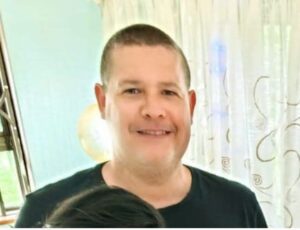The person who left the bomb that caused the explosion on Istanbul’s Istiklal Avenue has been arrested, Interior Minister Suleyman Soylu said early Monday.
“Our assessment is that the order for the deadly terror attack came from Ayn al-Arab in northern Syria, where the PKK/YPG has its Syrian headquarters,” said Soylu.
He reiterated that Türkiye will continue with its resolute and rightful war on terror.
“We will retaliate against those who are responsible for this heinous terror attack,” he added.
Soylu confirmed that eight people were killed and 81 were injured in the attack.
A bomb rocked a major pedestrian avenue in the heart of Istanbul on Sunday, killing six people, wounding several dozen and sending people fleeing the fiery explosion.
Emergency vehicles rushed to the scene on Istiklal Avenue, a popular thoroughfare lined with shops and restaurants that leads to the iconic Taksim Square. In one video posted online, a loud bang could be heard and a flash seen as pedestrians turned and ran away.
Turkish President Recep Tayyip Erdogan called the blast a “treacherous attack” and said its perpetrators would be punished.
He did not say who was behind the attack but said it had the “smell of terror” without offering details and also adding that was not certain yet. The president said investigations were ongoing by the police and the governor’s office, including reviewing footage of the area.
Erdogan said six people were killed. Vice President Fuat Oktay later updated the wounded toll to 81, with two in serious condition, and also said it appeared to be a terrorist attack.
Numerous foreign governments offered their condolences, including neighboring Greece with which relations are tense. Prime Minister Kyriakos Mitsotakis said he was “shocked and saddened by the news of the heinous attack.”
Turkey was hit by a string of bombings between 2015 and 2017 that left more than 500 civilians and security personnel dead. Some of the attacks were perpetrated by the Islamic State group, while others were executed by Kurdish militants who have led a decadeslong insurgency against the Turkish state for increased autonomy or independence.
Turkey has been fighting the militants — known as the PKK and considered a terrorist organization by Turkey, the United States and the European Union — in the country’s southeast for years.
Following the string of attacks, Turkey launched cross-border military operations into Syria and northern Iraq against Kurdish militants, while also cracking down on Kurdish politicians, journalists and activists at home through broad terror laws that critics say are a way to silence dissent.
Turkey’s media watchdog imposed temporary restrictions on reporting on Sunday’s explosion — a move that bans the use of close-up videos and photos of the blast and its aftermath. The Supreme Council of Radio and Television has imposed similar bans in the past, following attacks and accidents.
Access to some content on Twitter and other social media sites, such as videos, was limited. The blast happened at about 16:20 local time (13:20 GMT) on a shopping street in the Taksim Square area, the Turkish city’s governor Ali Yerlikaya said.
Vice-President Fuat Oktay said the blast was thought to be a terrorist attack carried out by a woman.
President Recep Tayyip Erdogan said the perpetrators would be punished.
Speaking at a news conference in Istanbul, he condemned what he called the “vile attack” and said “the smell of terror” was in the air.
BBC correspondent Orla Guerin, who is in the area, said there was a heavy police presence around Istiklal Street, which had been cordoned off. Helicopters were circling overhead as ambulances went back and forth.
Many shopkeepers standing in their doorways on the normally bustling street looked stunned, she said, adding that the incident will have come as a shock to many in the city.
A woman who was in an internet cafe on Istiklal Street when the blast took place said there was a scene of “frenzy” following the explosion.
“I saw wounded people rolling around, there was a woman carrying her dog,” she told the BBC.
“People were running in panic… There was black smoke. The noise was so strong, almost deafening,” another eyewitness, Cemal Denizci, told AFP.
The street – one of the city’s main arteries which is usually packed with shoppers – was previously targeted by a suicide bomber in 2016.
Earlier Sunday, Turkish President Recep Tayyip Erdogan said the explosion might be terror-related, but he was not yet certain.
“It may be wrong if we say this is definitely terror, but according to preliminary findings, what my governors told us, that there is a smell of terror here,” Erdogan said at a news conference.
He said authorities were reviewing CCTV footage.
“All the responsible figures will be identified and punished,” the president said.
Erdogan said he and his delegation would continue plans to attend the G20 summit in Bali, Indonesia.
Istanbul’s Chief Public Prosecutor’s Office has launched an investigation, with five public prosecutors assigned, the country’s official Anadolu news agency reported.
The city’s criminal court issued a broadcast ban on all visual and audio news, as well on social media sites, related to the explosion, Anadolu added.
Local media reports and images from the area showed a large number of emergency vehicles in the aftermath of the blast. Some people could be seen fleeing the scene, and the area was being cordoned off by security services.
One witness, journalist Tariq Keblaoui, told CNN he was in a store on Istiklal Street when the explosion occurred about 10 meters ahead of him.
He said several people could be seen lying on the ground following the blast.
The extent of the injuries of those he saw was not clear, but several people were bleeding from their legs and arms, Keblaoui said.
Istanbul Mayor Ekrem Imamoglu called for assistance for police and health worker teams as they respond to the explosion.
“It is essential to assist our police and health teams regarding the explosion on Istiklal Street, and to avoid posts that may cause fear and panic. All relevant teams are in the region, we will provide healthy information,” he tweeted.
News of the explosion was met with dismay internationally.
“Horrific news from Istanbul tonight. Condolences to the victims of the explosion at Istiqlal,” European Council President Charles Michel said. “All our thoughts are with those currently responding and the people of Türkiye at this very distressing time.”
NATO Secretary General Jens Stoltenberg tweeted his “deepest condolences” to the Turkish people, adding that NATO “stands in solidarity with our ally” Turkey.
Austrian President Alexander Van der Bellen expressed his “sincere condolences to the people of Turkey and the citizens of Istanbul,” adding: “In view of the horrific explosion this afternoon in the heart of Beyoğlu my thoughts are with the families of the victims. Wishing a speedy recovery to all injured.”
Italian Foreign Minister Antonio Tajani said: “Italy expresses its closeness to the Turkish government and people and its heartfelt condolences for the innocent victims. Our crisis unit is monitoring the situation and contacting our compatriots.”
Ukrainian President Volodymyr Zelensky tweeted of his “deep sadness” at the news of the blast. “I offer my condolences to the families of those who lost their lives and wish a speedy recovery to the injured,” Zelensky said. “The pain of the friendly Turkish people is our pain.”
Discover more from KossyDerrickent
Subscribe to get the latest posts sent to your email.







